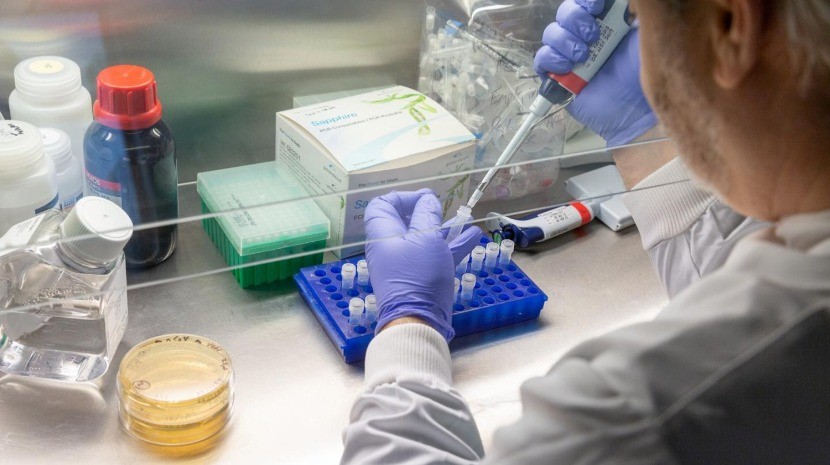According to experts, the impact of vaccinations against the new coronavirus is not expected to be felt in Portugal and the rest of the world before the end of 2021, even if the first immunisations take place at the beginning of the year.
Before any significant improvement can be identified there must first be enough vaccines to inoculate about half the population and achieve the effect of group immunity, opined Joaquim Ferreira, Director of the Clinical Pharmacology laboratory at the João Lobo Antunes Institute of Molecular Medicine, Portugal.
“In the best scenario, I would say that having the risk groups vaccinated over the first three months of 2021 and then the rest of the population by the end of July, we will only begin to see evidence of change in October, when ideally the situation will return to a sort of normality.”
Furthermore, the director of the Biochemistry Institute of the University of Lisbon, Miguel Castanho, opined that it will “probably, only be noticed if the vaccine is having any real affect next winter.”
“Until then, it would be unwise if people failed to take precautions because of a so called ‘miracle cure. When 50% of the population has been immunised, this will be the critical point in the fight against the virus and the perfect time for us to see if there have been any substantial changes.”
Miguel Castanho stress that “it would not be prudent to give the illusion or the expectation that success can be achieved before the end of 2021. If all goes as hoped and the summer of 2021 will pass in relative calm as it did this year, it will not make it possible to draw any firm conclusions about the effectiveness of vaccines until the end of the year.”
For Joaquim Ferreira, the first people who should be vaccinated are “certainly at risk groups: older people, over 70 years old, institutionalised people and those who have risk diseases.
This will result, after about two months, in fewer hospitalisations for severe cases of Covid-19, which mostly affect older people, fewer people in intensive care and fewer deaths.
It will take time, even if the vaccine works as we hope and as the trials suggest, and we start to reduce the risks and rate of infection and the risk of serious illness if people become infected. But this will hardly impact on global numbers because the majority of the population will not be vaccinated immediately.”
He went on to say “After the most vulnerable people, vaccination of health professionals, firefighters, military personnel, people vital to civic service should follow, and thereafter all other healthy adults but those with hypertension and diabetes being pushed to the top of the list. It will not be an overnight benefit, but incremental many over months.”
Joaquim Ferreira pointed out that “the Portuguese are fantastic at adapting but not always planning, and if this situation is not well planned, particularly access and distribution, there could be setbacks, a scenario that can be multiplied on a worldwide basis.”
It is about producing billions of vaccines in a short period of time, a process that will take at least all of next year, even with all laboratories working at 100% capacity.
Vaccination programs need to be implemented faster than ever before in history, but it is important not to be naïve from the point of view of access to basic health. Populations in those countries where the vaccine is produced are likely to be the first to be inoculated particularly as distance will be an obstacle in the distribution process.
Joaquim Ferreira further stressed that despite the selfishness of individual countries “Everyone is interested. “Europeans are more interested that those who live in Africa or Asia because that allows for global control. The return to functioning and healthy economies is essential to facilitate the production of goods and the employment of people to stimulate demand otherwise our global economy will continue to suffer.”
Miguel Castanho pointed out that “one factor that can complicate the situation is that at this moment, it is unknown how long the immunity conferred by the vaccine will last. If, when we vaccinate the last people, the first ones have to be vaccinated again, this becomes an on going situation and it will be very difficult to ensure global compliance.”
The researcher suggests that “traveller’s consultations” will be extended to many destinations because there will be areas of the globe where it will not be advisable to travel without vaccines, as is the case today because of other diseases.
“We will probably add SARS-CoV-2 to the list of dangerous viruses in some areas of the globe, even if we are already talking about 2022 or 2023, and this in an optimistic perspective.” He also pointed out that vaccines at a more advanced stage, even with efficacy rates above 90%, all have “an Achilles’ heel in that they all target the same structure of the virus, and if that changes significantly, they may become obsolete.”
Miguel Castanho commented that “there are other hopes besides the vaccine” to turn the tide of the pandemic. There is an “obsession” with this tool and that, “in the political discourse, the vaccine was adopted as a way of trying to reassure populations and transferring the responsibility for solving the problem from the political to the scientific world.”
Among those hopes are drugs to treat patients with Covid-19 and diagnostic tests, which can, by themselves, greatly alter the face of fighting the pandemic.
“If each one of us had a test at home that could be done as easily as a diabetic performs a blood glucose test without the need for a health technician to perform a swab, everyone would quickly know if they could leave home.”
Joaquim Ferreira recognises that “the risk of serious adverse effects is not zero” and that will only become apparent when more is known about what “the vaccine can induce when more people start to be inoculated. ”
“I am very excited. We have data, both from what has been shared with the most advanced vaccine manufacturers, and from the scientific knowledge that has emerged over the past months, and this provides confidence for the future. If vaccines are approved by the American and European drug agencies, we must clearly move forward, consciously, and be part of this movement.”
Samantha Gannon
info at madeira-weekly.com







